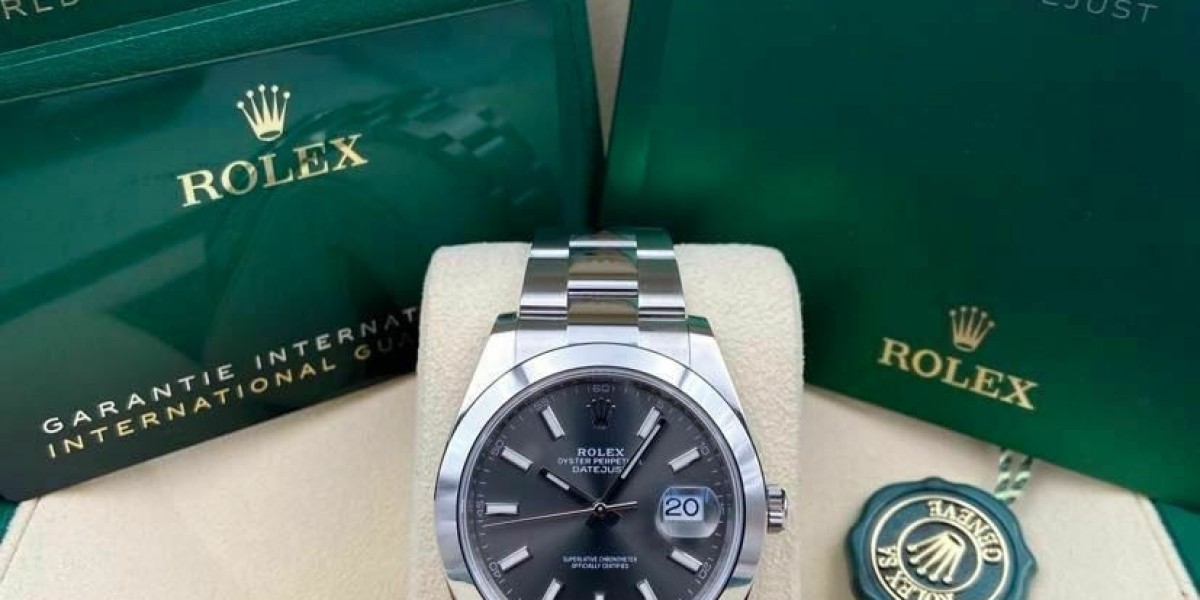Counterfeit goods, including replica Rolex watches, are a prevalent difficulty within the luxurious market. These unauthorized reproductions of well-identified manufacturers are offered at a fraction of the price of the authentic product, making them interesting to customers on the lookout for a bargain. However, the sale of replica Rolex watches raises moral, legal, and economic considerations. Within the case of Rolex, the model is famend for its high-quality timepieces and strict management over distribution channels. Promoting replica Rolex watches is just not only a violation of mental property rights but additionally undermines the brand's repute and revenue. This article will explore the authorized implications of promoting replica Rolex watches and why it is prohibited.
Rolex is a Swiss luxury watch manufacturer that was founded in 1905. The brand is synonymous with quality, precision, and exclusivity, which has earned it a reputation as one of the vital prestigious watchmakers on the earth. Rolex watches are known for his or her intricate craftsmanship, progressive design, and excessive resale value. Because of this, counterfeiters have been quick to capitalize on the model's popularity by producing replica watches that mimic the appearance of authentic Rolex timepieces.
Replica Rolex watches are unauthorized copies of the original product, which infringes on Rolex's intellectual property rights. The brand owns trademarks, patents, and copyrights that protect its designs, logos, and brand identify. By selling replica Rolex watches, individuals and businesses are partaking in trademark infringement, which is a violation of mental property legislation. Trademarks are assets which are used to differentiate the supply of products and companies within the market. Rolex's trademarks are registered with the United States Patent and Trademark Workplace, which provides the model unique rights to make use of its trademarks in commerce. Promoting replica Rolex watches with counterfeit trademarks is unlawful as a result of it misleads customers into believing that they are purchasing an authentic Rolex product.
In addition to trademark infringement, promoting replica Rolex watches may also represent copyright infringement. Copyright protects authentic works of authorship, together with literary, inventive, and musical creations. Rolex's watch designs are thought-about works of art which are protected by copyright law. Anyone who reproduces, distributes, or sells copyrighted materials with out permission from the copyright owner is committing copyright infringement. Replica Rolex watches that mimic the design of genuine Rolex timepieces will be thought of unauthorized reproductions of copyrighted material, which is illegitimate underneath copyright regulation.
The sale of replica Rolex watches not solely violates intellectual property rights but in addition has financial implications for the brand. Counterfeiting undermines the worth of Rolex's merchandise and damages its fame as a luxurious model. Shoppers who buy replica Rolex watches are sometimes upset by the inferior quality of the counterfeit product, which displays poorly on the brand. As well as, counterfeit Rolex watches flood the market with cheap imitations, making it troublesome for shoppers to tell apart between genuine and counterfeit products. This creates confusion and uncertainty in the market, which may harm Rolex's sales and profitability.
Legal motion may be taken in opposition to people and companies that promote replica Rolex watches. Rolex has a dedicated legal staff that monitors the marketplace for counterfeit merchandise and takes enforcement actions in opposition to infringers. In some instances, Rolex has filed lawsuits towards counterfeiters for trademark infringement, copyright infringement, and different violations of mental property regulation. These authorized proceedings can result in injunctions, damages, and penalties for the infringing parties. Jail time may also be a consequence for people concerned within the sale of counterfeit items.
In conclusion, selling replica Rolex watches is against the law as a result of trademark infringement, copyright infringement, and economic harm to the brand. Despite the allure of inexpensive luxury, shoppers should remember of the moral and legal penalties of purchasing counterfeit goods. Rolex's strict enforcement of mental property rights serves to guard its brand integrity and maintain the value of its products. By understanding the legal implications of promoting replica Rolex watches, people and businesses could make knowledgeable selections and keep away from participating in illicit actions that harm professional brands.








